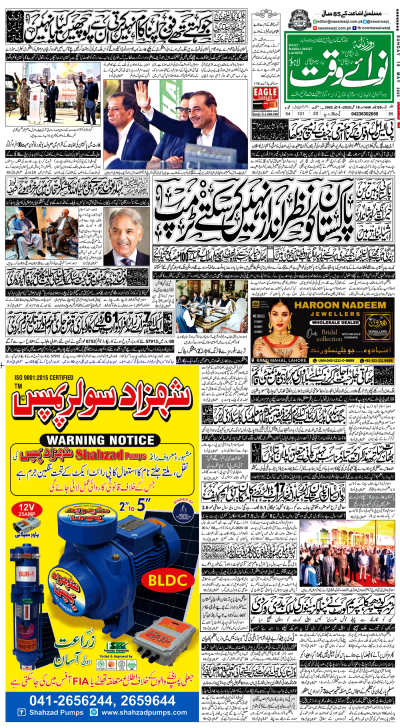Governments in Pakistan often predicate the presentation of their budgets by calling them “historic” or “people’s” budgets – this research asks what would make for a truly “historic” budget.
Pakistan’s taxation system needs to be rid of the burden of past mistakes. Over time, these errors have created a taxation system that is unfair, riddled with loopholes, damaging to some sectors of the economy and discriminatory to the already disadvantaged.
Pakistan’s real issue is a revenue problem: the state collects less money than it needs, and with new challenges of security and climate change – its needs are increasing. Our budgetary deficit is filled by debt because we do not collect enough through taxes. However, we have a further issue with our debt; it is expensive debt. One third of our debt is foreign, two thirds is raised through domestic sources (Up to 2009-2010 foreign and domestic debt were about equal). Foreign debt has an interest rate of 1.9%. Domestic debt has an interest rate of 10.7%. Foreign debt is cheaper, but access to it for Pakistan is harder. The cost of interest on our debt is 1.3 trillion, of which 92% goes to domestic creditors, and 8% to international lenders.
In order to create a ‘Historic” Budget’, these three problems need to be addressed:
1. The Tax Gap Needs to be Bridged:
Pakistan collected Rs. 2,800 billion in tax in 2014-15. It should have collected Rs. 3,975 billion. That’s more than what we spend on education and health combined.
Pakistan’s tax gap is composed of tax evasion (illegal), tax avoidance (legal) and foregone revenue through exemptions and concessions given by the government. Along with tax evasion, exemptions and concessions deserve more scrutiny because we are paying a high cost for this.
Exemptions and concessions mean those who can pay don’t – and they don’t because they have used their influence to extract a decreased with legal cover. Exemptions and concessions can be positive measures to help certain industries grow – but only if they are designed well and applied fairly.
2. We Need to Stop Burdening the Poor Because We Can’t Collect from the Rich:
In 2014 – 2015, the share of indirect taxes was 63%. In other countries like India, Turkey, Malaysia and Indonesia the share of indirect taxes is below 60%. The share of Withholding Tax in income tax has gone up from almost 49% in 2006-07 to 61% in 2013-14. We are moving in the wrong direction because indirect taxes are regressive and hurt the poorer segments of society.
Even in indirect taxes there is room to be more progressive. In Pakistan the highest income tax rate is applied at 50 times per capita income compared to 18 times in Bangladesh, eight times in Sri Lanka and 10 times in India. This means rich Pakistanis can have a lot more income than their counterparts in South Asia before they pay the highest rate of income tax.
3. Close the Tax Gap Fairly
With the media focusing almost exclusively on tax evasion by well-off individuals in Pakistan, tax evasion by companies tends to get ignored.
The largest gap in our revenue collection is actually in Corporate Income Tax, totalling 3.7% of GDP. Only 40% of companies registered with the SECP (Security and Exchange Commission of Pakistan) file returns and only 60% of those who file returns declare any profits.
Agriculture constitutes 21% of GDP but contributes to 1% of taxation. Some estimates have stated that we should be collecting up to 56 times more than current collection – that is up to Rs 112 billion. Meanwhile industry constitutes 18% of GDP but is overburdened with 73% of total taxation.
Major reforms in property tax should be another priority. In Punjab alone, it is estimated that the revenue potential in Urban Immovable Property Tax is almost Rs25 billion If collected, this would be 10 times more than what is actually collected.
The Reforms We Need:
To borrow from one of Pakistan’s founding edicts (unity, faith, discipline) as a means of organising reform proposals, the reforms need to:
Create unity by having an even-handed tax system that has equity and fairness built into it.
We can imbibe the system with equity and fairness by:
Reducing loopholes to whiten money;
Removing schedules 2 and 3 of the Income Tax Ordinance (which list exemptions, etc);
Finishing cascading of indirect tax;
Rationalising energy taxation so subsidies only go to the poor;
Creating faith in the system by inspiring trust, which can only be done by increasing moral authority and credibility of the tax system;
Reducing tax expenditures;
Creating National Reforms Commission;
Removing moral hazards of the tax amnesty schemes;
Eliminating benami transactions;
Reviewing public expenditures;
Bringing discipline with openness by having transparency and accountability built into the tax system;
Data mining third party databases;
Converting CNIC into NTN;
Giving autonomy to FBR;
Taking measures to improve FBR;
Harmonising customs tariffs
(This is Research Summary of “Fixing Tax to Create a Historic Budget”. Raftaar (Research and Advocacy for the Advancement of Allied Reforms), Raftaar commissioned three reports that analyse taxation policy by noted economists Dr. Hafiz A. Pasha, Dr.Waqar Ahmad, Mr. Wasim Saleem and Mr. Sakib Sherani that has been used to develop “Fixing Tax to Create a Historic Budget”. )






